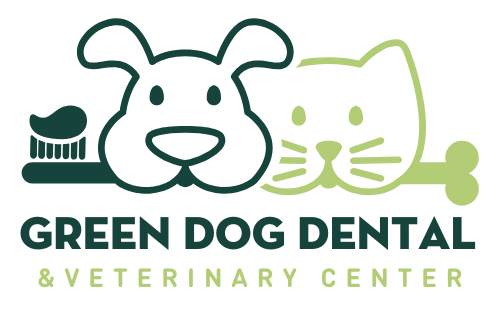Not everyone has time to cook meals for their dog, but with a little effort, you could try adding some healthy toppers to their dry food that you already give them! Here are the top 5 foods we suggest to give a try:
#1 Cooked or finely chopped raw veggies:
Use nonstarchy veggies so as not to add too many calories. Vegetables are a great healthy snack. They can be fed raw but are more easily absorbed if cooked therefore more nutritious. They can also be added to the food to increase bulk but not calories. Avoid the onion family as these can be harmful to pets. Avoid potatoes and corn as these are too starchy as an additive although they are fine to be part of a balanced diet. The cruciferous veggies are terrific but can cause gas for some dogs if given in large amounts. Dark leafy green are fabulous and do not need to be cooked. Limit veggies to about 1/4th cup per 10 pounds per day, as most veggies have between 30-70 calories per cup. Of course, organic is ideal to decrease the overall pesticide load.
2. Fresh fruit:
Berries are the best, which are chuck full of antioxidants and other phytonutrients. Other good options are sliced apples, bananas, watermelon and pears. No grapes or raisins as these can cause kidney failure in some pets. Watch the calories, it’s easy to overdo it.
3. Sprouts:
These baby grains and legumes are packed with nutrition and make a great healthy dog food topper. Most dogs actually enjoy them believe it or not. Sprouted grains increase the amounts and bioavailability of protein, vitamins and minerals. Contrary to popular belief, grains are not inherently bad for your dog. The quality and quantity of grain is often the issue and most kibbled diets, even the grain free ones, have plenty of carbohydrates so we don’t need to add more. Sprouted grains are proportionately lower in starch and higher in other nutrients.
4. Eggs:
They are a healthy and when cooked, a bioavailable form of protein. The “ideal” way to prepare an egg is soft boiled, about 6 minutes, which cooks the white and leaves the yolk runny. The eggs could also be hard boiled or scrambled. Do not feed the shells as they do not have an ideal calcium phosphorous ratio for dogs. An egg has about 70 calories so factor this in when feeding. A daily egg is fine for a medium or large breed but small breeds should be limited to ½ an egg per day. Be sure to cut the kibble back proportionately to avoid weight gain.
5. Sardines packed in water:
These are a great added protein and Omega 3 fatty acid source. One sardine is about 25 calories and is fine for a small dog. Larger dogs can have 2-3 sardines, but be sure to factor these calories in to the daily caloric total and cut the kibble back proportionately. Fatty acids go rancid quickly so once the can is open, the sardines should be fed within a couple days.
With any food additive it is advisable to introduce slowly and watch for any signs of digestive upset. Dogs are scavengers by nature and really should be able to tolerate all the items on this list but the fact is that some dogs can’t. You know your pet, if they have and iron gut then go for it. If they have a more delicate digestion go slow or abstain.
To schedule an appointment click here or call (310) 606-2407
This blog post first appeared on The Drake Center
